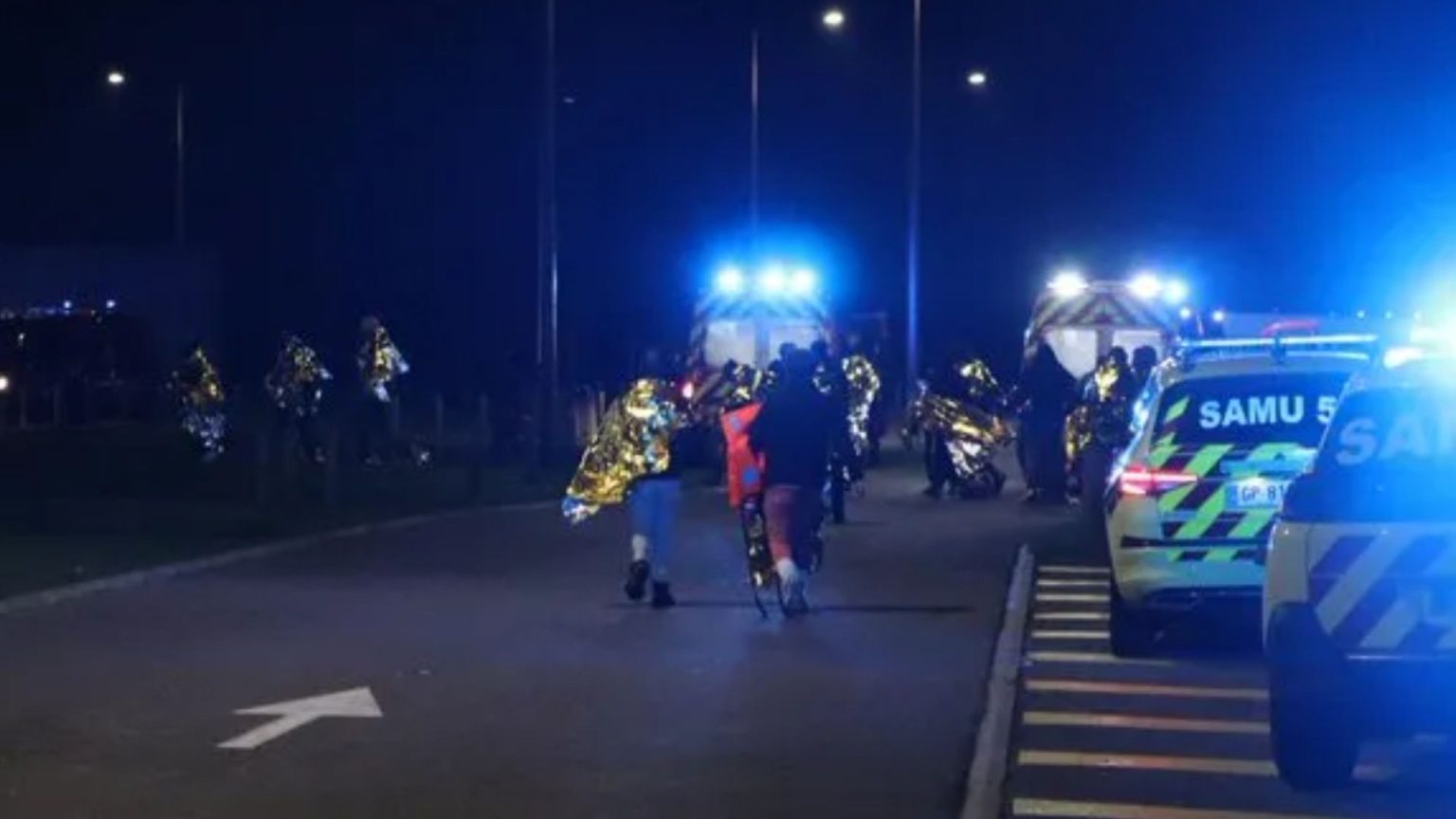The tranquil shores of Sangatte, France, were tragically disrupted in the early hours of a somber morning as a desperate rescue operation unfolded amidst a developing migrant crisis. The English Channel, a deceptively serene stretch of water separating France and England, became the scene of a heartbreaking tragedy, claiming the lives of at least two individuals attempting the perilous crossing. French authorities, including police and fire crews, responded en masse to the distress calls, their presence a stark reminder of the ongoing humanitarian crisis and the inherent risks faced by those seeking refuge or a better life on foreign shores. The initial reports painted a grim picture, with fears that the death toll could rise as the search and rescue operations continued under the weight of a growing sense of urgency.
The unfolding events at Sangatte beach underscore the precarious reality facing migrants attempting to reach the UK via small boats. This route, often undertaken in overcrowded and unsuitable vessels, has become increasingly popular despite its inherent dangers, driven by a combination of factors including conflict, persecution, economic hardship, and tightening border controls. The turbulent waters of the Channel, coupled with unpredictable weather conditions, pose significant threats to those making the journey, often without adequate safety equipment or navigational expertise. The tragedy serves as a grim reminder of the human cost of these desperate attempts, highlighting the vulnerabilities of those forced to undertake such risky voyages and raising urgent questions about the efficacy and ethics of current migration policies.
The response by French authorities highlights the complex logistical and ethical challenges associated with managing the migrant crisis in the Channel. The scale of the rescue operation at Sangatte speaks volumes about the ongoing efforts to save lives at sea, but also underlines the limitations of reactive interventions. While the immediate focus remains on rescuing survivors and recovering bodies, the incident casts a long shadow over the broader issues surrounding migration management, border security, and international cooperation. The recurring nature of these tragedies underscores the need for proactive solutions that address the root causes of migration, offer safe and legal pathways for asylum seekers, and dismantle the networks facilitating dangerous crossings.
The incident at Sangatte is not an isolated event; it is part of a larger and growing trend of migrant fatalities in the Channel. Previous incidents have resulted in significant loss of life, each tragedy fueling calls for increased cooperation between France and the UK to address the crisis. The two countries have often been at odds over responsibility and resource allocation, with blame being traded amidst the rising death toll. The shared maritime border presents a complex jurisdictional challenge, hindering effective coordination and potentially compromising the safety of those risking their lives at sea. The recurring tragedies underscore the urgent need for a more cohesive and humane approach, one that prioritizes saving lives and providing viable alternatives to perilous sea crossings.
Beyond the immediate crisis, the deaths at Sangatte raise broader ethical questions about the treatment of migrants and refugees. The desperation that drives individuals to risk their lives in such a manner highlights the systemic failures of international migration policies and the lack of safe and legal pathways for those seeking refuge. The focus on border security and deterrence often overshadows the humanitarian needs of vulnerable populations, creating a cycle of desperation and exploitation. The incident serves as a stark reminder of the shared human responsibility to protect the lives and dignity of all, regardless of their nationality or status, and to work towards a more just and equitable global system.
The tragedy at Sangatte beach is a poignant reminder of the human cost of the migration crisis. The loss of life underscores the urgent need for a multi-pronged approach that addresses the root causes of migration, enhances search and rescue capabilities, provides safe and legal pathways for asylum seekers, and fosters greater international cooperation. Moving forward, the focus must shift from reactive measures to proactive solutions that prioritize human dignity and ensure the safety and well-being of those forced to flee their homes in search of a better life. The international community must work together to address the complex challenges of migration, ensuring that tragedies like the one at Sangatte become a thing of the past, replaced by a system grounded in compassion, cooperation, and respect for human rights.




